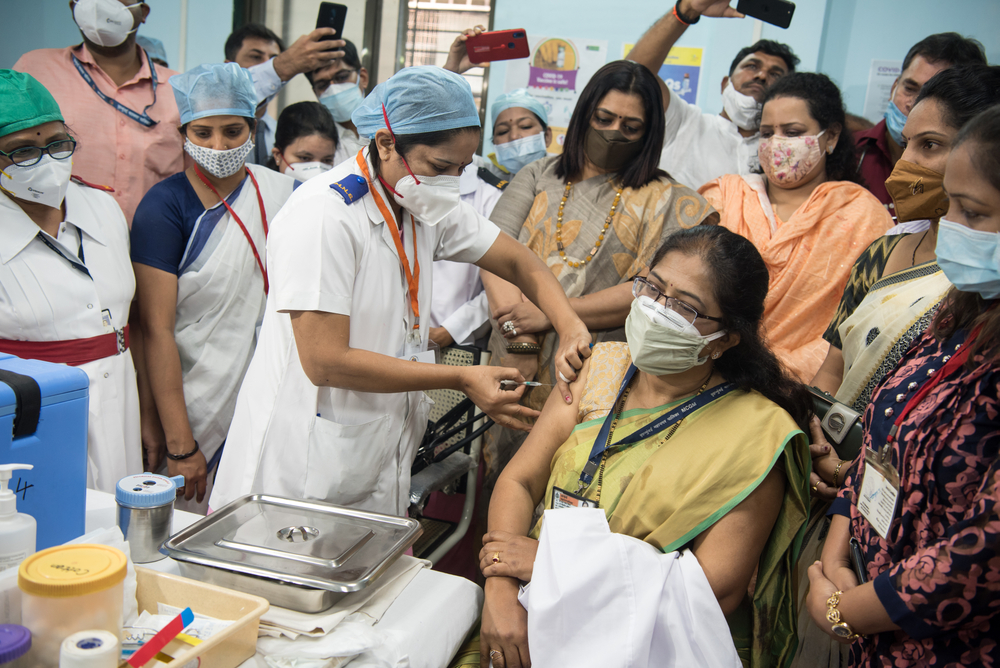India, the second-largest populous country in the world, did not let time slip by catching onto the vaccination roll-out along with the rest of the world. With the emergency approval of home-grown COVID-19 vaccine, Covaxin, and Astrazeneca-Oxford’s Covishield, nearly 15 million citizens in India have been vaccinated from January to early March 2021.
Covishield Vaccine
Covishield is manufactured locally by the Serum Institute of India. Derived from a weakened version of the cold virus that was modified to look like coronavirus. When injected, this virus does not cause any infection. Instead, it triggers the immune system to produce antibodies to fight the virus. The Covishield is administered in 2 doses, taken 28 days apart.
Covaxin Vaccine
Covaxin, manufactured by Bharat Biotech based in India, is an inactivated vaccine that is made from killed coronavirus. When the vaccine is administered, the body’s immune system recognizes the virus and develops antibodies in preparation to fight against it. Just like Covishield, the Covaxin is also administered at a gap of 28 days.
India’s COVID-19 Vaccination drive
First phase
The first phase of the vaccination drive kickstarted in the country on January 16th, 2021. The world’s biggest vaccination drive targeted healthcare and frontline workers across 3,006 vaccination sites.
Second phase
The second phase of the vaccination drive started on March 1st, 2021. This phase was focused on people in the vulnerable age group. This included those above the age of 60 as well as those above 45 with comorbidities. This phase saw the active participation of both government and private hospitals in administering the vaccine. While the government hospitals provided the vaccines for free, private hospitals charged a nominal rate for administration fees.
At present, India is the fourth country in the world, trailing behind USA, China and the United Kingdom, with regards to the number of COVID-19 vaccine doses administered.
Controversy Surrounding Covaxin?
New vaccines are normally introduced after three phases of human clinical trials. However, in the case of Covaxin, the Drugs Controller General of India had granted restricted emergency approval for its usage even when the third phase of the trials were ongoing. This raised serious objections from experts. However, India’s Drugs Controller General opined that a vaccine that is in clinical trial mode can be approved in the public interest as a precaution, especially in case of infection by mutant strain.
How to get the COVID-19 vaccine in India?
Those who wish to get vaccinated should first self-register in CoWIN 2.0 portal or the Arogya Setu app. If you are registering through the Arogya Setu app, then you should click on the CoWIN icon on the home page and follow the below steps.
There will be four options on the home page: vaccine information, vaccination, vaccination certificate, and vaccination dashboard.
Click on vaccination and select the “Register Now” option.
- Enter your mobile number. You will get an OTP on the mobile. You should then verify your phone by entering the OTP.
- Once you verify your mobile number, you should upload your id proof and enter all personal details.
- On the next screen, you should enter the proof of eligibility and select the vaccination center.
- Once you are registered, you will receive an SMS with details of your appointment.
On the date specified, you should visit the assigned vaccination center and get vaccinated. You can also change the center, reschedule or cancel an appointment in the event that you are not able to make it.
Final Thoughts
The chances of contracting COVID-19 after the vaccination is low. If by chance, you get infected, the symptoms will also be milder. Thus as responsible citizens, one should get the vaccine as soon as possible to protect yourself and the people around you.












